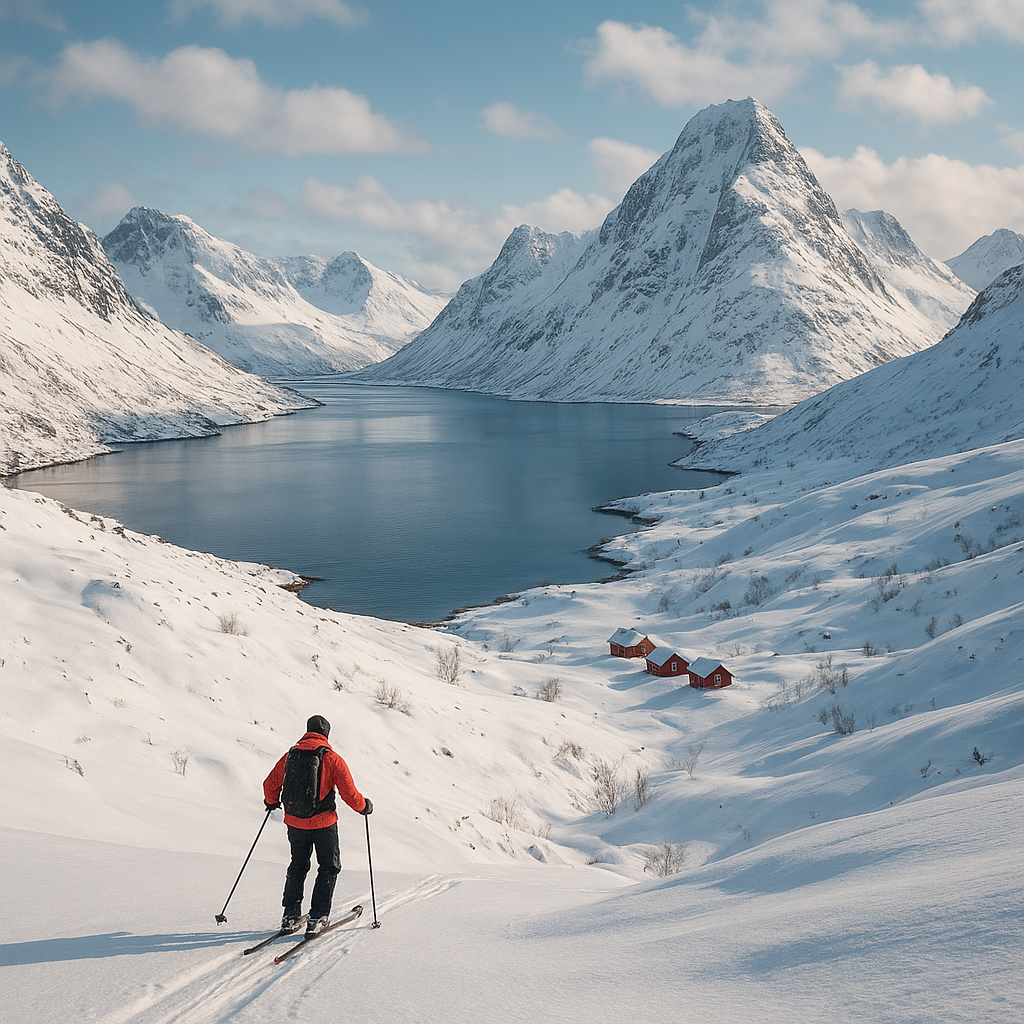
Embarking on a journey into the realm of winter sports offers an exhilarating mix of adventure, fitness, and connection with nature’s silent beauty. Among these activities, cross-country skiing stands out as one of the most accessible and rewarding ways to explore snow-covered landscapes. Whether you’re gliding along groomed trails in a national park or forging your own path through a tranquil forest, the experience strengthens your body and calms your mind. This guide provides insights into mastering basic techniques, choosing the right gear, and discovering prime destinations to elevate your winter sports passion.
Getting Started with Cross-Country Skiing
Understanding the Basics
At its core, cross-country skiing combines elements of running, hiking, and balance to traverse snow-covered terrain. Unlike downhill skiing, which relies on gravity, cross-country demands continuous effort to propel yourself forward. This constant motion engages a wide range of muscle groups, boosting endurance and cardiovascular fitness. For beginners, the key lies in mastering simple strides and weight distribution before tackling more challenging routes.
Choosing Your First Trail
- Select a flat or gently rolling trail to focus on developing a smooth, consistent rhythm.
- Look for well-marked paths maintained by local parks or ski clubs to ensure safety and clear terrain.
- Check trail difficulty ratings; many resorts label routes as green (easy), blue (intermediate), or black (advanced).
- Consider guided group outings, which can boost confidence and introduce you to ideal learning environments.
Essential Gear and Preparation
Selecting the Right Equipment
Investing in quality equipment pays dividends in comfort and performance. As a newcomer, focus on three core components: skis, boots, and poles. For classic style skiing, choose narrow skis with a slight “kick zone” underfoot. Skate skiing requires stiffer, shorter skis to withstand lateral pushes. Boots should flex comfortably around the ankle while providing adequate warmth and support. Properly sized poles help maintain balance and drive, extending from the ground to roughly your armpit level for classic technique.
Dressing for Success
Layering is essential when facing variable temperatures. Start with a moisture-wicking base layer to draw sweat away from the skin. Add an insulating mid-layer, such as a lightweight fleece or synthetic jacket, to trap heat. Top it off with a wind-resistant outer shell—preferably breathable—to protect against wind chill without overheating. Don’t forget essentials like gloves, a hat, and sunglasses or goggles to shield your eyes from glare and frozen air.
Mastering Basic Techniques
Classic Technique
The classic stride mimics a walking or jogging motion on skis. Begin by aligning your weight over the center of each ski, then push off with one foot, applying pressure to the “kick zone” beneath your toe. Glide forward on the opposite ski, extending your arm on that side and planting the pole behind you for support. Rhythm is crucial—practice alternating arms and legs in a steady 1:1 or 2:1 pattern, depending on terrain and personal comfort.
Skate Technique
Skate skiing resembles ice skating, using a wide V-shaped ski stance. Shift your weight laterally from one ski to the other, pushing off to the side with each glide. Arms swing in opposition to legs, with poles timed to maximize propulsion. While more physically demanding, skate skiing offers faster speeds and dynamic workouts. Begin on smooth, groomed loops to refine balance and prevent fatigue-related form breaks.
Exploring Winter Trails and Destinations
Local Gems and National Parks
- Yellowstone National Park: Offers well-maintained trails with breathtaking wildlife sightings and thermal features.
- Finland’s Lapland: A dream for those seeking pristine snow, vibrant northern lights, and cozy wilderness lodges.
- Cross-Country Skiing Paradise in Norway: Known as Langrenn, local villages provide expertly groomed networks and insightful community events.
- Rocky Mountain Resorts: Combine alpine vistas with cross-country centers, perfect for combining downhill and classic experiences.
Planning Your Adventure
When plotting a winter excursion, account for weather forecasts, trail conditions, and potential hazards like avalanche zones. Book accommodations well in advance, particularly during peak holiday seasons. Enlist the help of local guides for remote routes, where knowledge of terrain and emergency protocols is indispensable. Carry a compact backpack with water, energy bars, a first-aid kit, and a map or GPS device to ensure a safe and enjoyable outing.
Health, Social, and Environmental Benefits
Physical and Mental Well-being
Engaging in cross-country skiing delivers a low-impact, full-body workout that strengthens legs, core, and upper body while enhancing aerobic capacity. The steady, rhythmic nature of the sport has been shown to reduce stress levels, improve mood, and boost mental clarity. Spending extended time outdoors fosters a deeper connection to nature, encouraging mindfulness and a sense of achievement with every glide.
Community and Eco-Consciousness
Winter sports communities often rally around conservation efforts, advocating for sustainable grooming, minimal impact on wildlife, and responsible waste disposal. Many clubs organize trail maintenance days to keep forests and parks pristine. Skiers share tips and celebrate personal milestones, creating a supportive network that welcomes all skill levels. Participating in events or races further enhances camaraderie and inspires newcomers to embrace a healthier, nature-driven lifestyle.

